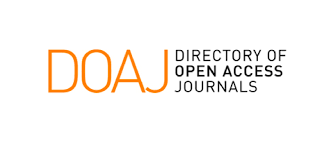SOCIAL POLICY, STATE, AND ‘SOCIETY’
DOI:
https://doi.org/10.26512/ser_social.v15i33.13047Palavras-chave:
Política social, Estado e sociedadeResumo
This contribution explores the relations among social policy, the state and ‘society’ in the light of recent changes in capitalist social formations, including the increasing integration of the world market and the increasing significance of ‘world society’ as the ultimate horizon of communication, calculation, and policy deliberations. It builds on my earlier work on welfare state restructuring but updates it in four ways. First, it provides stronger foundations for analyses of welfare regimes in the nature of capitalism, looking beyond a general critique of the capitalist mode of production to consider specific configurations of capitalist social formations and their insertion into the world market. Second, it extends my earlier work beyond the economies of Atlantic Fordism and their crises to include export-oriented economies and developmental states and the differential implications for welfare regimes of knowledge-based economies and finance-dominated regimes as potential bases of post-Fordist accumulation. Third, especially in relation to finance-dominated accumulation, it considers the problematic status of the welfare state and/or social policy in neoliberal regimes that are strongly inserted into a competitive world market. And, fourth, it addresses the status of ‘global social policy’ as a response to the integration of the world market and the emergence of ‘world society’. The contribution ends with some general conclusions about the study of welfare regimes.
Downloads
Referências
Commission of the European Union (1994) Growth, Competitiveness, Employment: The Challenge and Ways Forward into the 21st Century. White Paper. Brussels: Commission of the European Union.
CROUCH, Colin (2004) Post-Democracy, Cambridge: Polity.
FOUCAULT, Michel (2008) The Birth of Biopolitics: Lectures at the Collège de France, 1978-1979, Basingstoke: Palgrave.
FRIEDMANN, T.L. (2005), The World is Flat, A History of the 21st Century. New York: Farrer & Giroux.
GIDDENS, Anthony (1998) The Third Way, Cambridge: Polity.
GURRÃA, Ángel (2011) ‘Policy strategies for growth, competiveness and employment in Europe’, http://www.oecd.org/netherlands/policystrategiesforgrowthcompetivenessandemploymentineurope.htm, accessed 27 May 2013.
HABERMAS, Jürgen (1989) The Structural Transformation of the Public Sphere, Cambridge MA: MIT Press <1962>
JESSOP, Bob (2002) The Future of the Capitalist State, Cambridge: Polity.
JESSOP, Bob (2013a) ‘Finance-dominated accumulation and post-democratic capitalism’, in S. Fadda and P. Tridico, eds, Institutions and Economic Development after the Financial Crisis, London: Routledge (in press)
JESSOP, Bob (2013b) ‘Revisiting the regulation approach: critical reflections on the contradictions, dilemmas, fixes, and crisis dynamics of growth regimes’, Capital & Class, 37(1), 5-24.
KEYNES, John Maynard (1936) The General Theory of Employment, Interest and Money, London: Macmillan.
LIST, F. (1841) The National System of Political Economy, New Jersey: Augustus M. Kelly, 1991 edition.
MARSHALL, Thomas H. (1950) Citizenship and Social Class. And Other Essays. Cambridge: Cambridge University Press.
MARX, Karl (1967) Capital, Volume1. London: Lawrence & Wishart.
OFFE, Claus (1984): Contradictions of the Welfare State. London: Hutchinson.
POULANTZAS, Nicos (1978) State, Power, Socialism, London: Verso.
RICARDO, David (1817) Principles of Political Economy and Taxation, London: John Murray.
SCHUMPETER, Joseph A. (1939) Business Cycles: A Theoretical, Historical, and Statistical Analysis of the Capitalist Process, 2 vols. New York: McGraw-Hill.
Downloads
Publicado
Como Citar
Edição
Seção
Licença
 Todo o conteúdo deste periódico, exceto onde está identificado, está licenciado sob uma https://creativecommons.
Todo o conteúdo deste periódico, exceto onde está identificado, está licenciado sob uma https://creativecommons.
Copyright: Os autores serão responsáveis por obter o copyright do material incluído no artigo, quando necessário.
Excepcionalmente serão aceitos trabalhos já publicados (seja em versão impressa, seja virtual), desde que devidamente acompanhados da autorização escrita e assinada pelo autor e pelo Editor Chefe do veículo no qual o trabalho tenha sido originalmente publicado.










